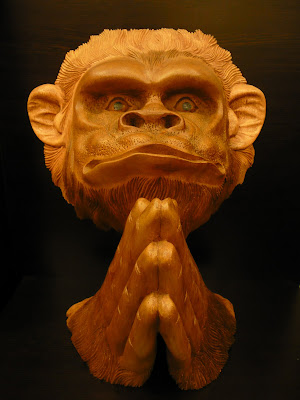In that car journey from Dongguan (see last post), my friend narrated his last meeting with his friend who questioned the life he had been living. What has it all being for? For money? Security? Status? The good things in Life? Are they worth the sacrifices? Isn’t it in the end, no matter what one achieved; they are just like 浪淘沙 (làngtáoshā), sands that are washed away by the relentless tides of time.
Or is Life just an illusion as suggested by 苏轼 Sū Shì’s Ode to Red Cliff 念奴娇 - 赤壁怀古 (niàn nú jiāo - Chìbì huáigǔ). Even if one is as kingly as Li Yu 李煜 lǐyù or as heroic as Zhou Yu 周瑜 Zhōu Yú, in the end we will still be swept away by the Great River to the East. Maybe he sensed his end was near. He was not feeling well and intended to visit the hospital for a thorough check-up. He did not do so immediately because he was busy and needed to go for another outstation trip. He never made it back.
Ode to Red Cliff was the second poem he quoted in this reminiscence just before his demise. I did not know this friend of his but I was sad when I heard his story.

念奴娇 - 赤壁怀古 niàn nú jiāo - Chìbì huáigǔ
苏轼 Sū Shì
大江东去, 浪淘尽、千古风流人物。
故垒西边, 人道是、三国周郎赤壁。
乱石崩云, 惊涛裂岸, 卷起千堆雪。
江山如画, 一时多少豪杰!
遥想公瑾当年, 小乔初嫁了, 雄姿英发。
羽扇纶巾, 谈笑间、樯橹灰飞烟灭。
故国神游, 多情应笑我, 早生华发。
人生如梦, 一樽还酹江月。
dàjiāng dōngqù, làngtáojìn, qiāngǔ fēngliú rénwù.
gùlěi xībian, réndào shì, Sānguó Zhōuláng Chìbì.
luànshí bēngyún, jīngtāo liè àn, juǎnqǐ qiān duīxuě,
jiāngshān-rúhuà, yīshí duōshao háojié!
yáoxiǎng gōngjǐn dāngnián, xiǎoqiáo chūjià le, xióngzī yīngfā.
yǔshàn-guānjīn, tánxiào jiān, qiánglǔ huīfēi yānmiè.
gùguó shényóu, duōqíng yīngxiào wǒ, zǎoshēng huáfà.
rénshēng rúmèng, yīzūn huánlèi jiāngyuè.
Nian Nu Jiao (Graceful Nian Nu) - Ode To Red Cliff
The Great River flows east, its waves sweeping away, all distinguished figures.
The fortress in the west of Red Cliff, it is said, stood Zhou Yu of the Three Kingdoms.
Scraggy rocks piercing clouds, sudden waves smashing the shores, into a thousand snow flakes.
The scene is like a painting, for a while, full of heroes!
Recalled Zhou Yu in his prime, Xiao Qiao by his side, in full majestic splendour.
The composed master strategist; talked and laughed, while the enemy's ships went up in flames.
A romantic journey to the past, I laughed at the sentimental me, prematurely turning gray.
Life is like a passing dream, a toast to the moon's reflection.







